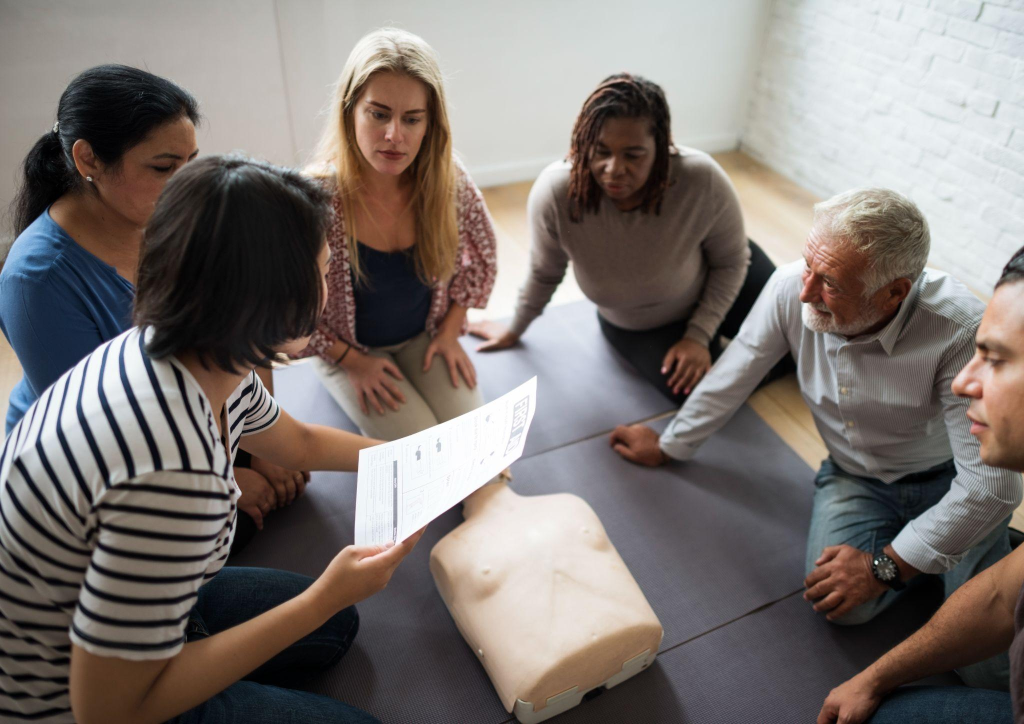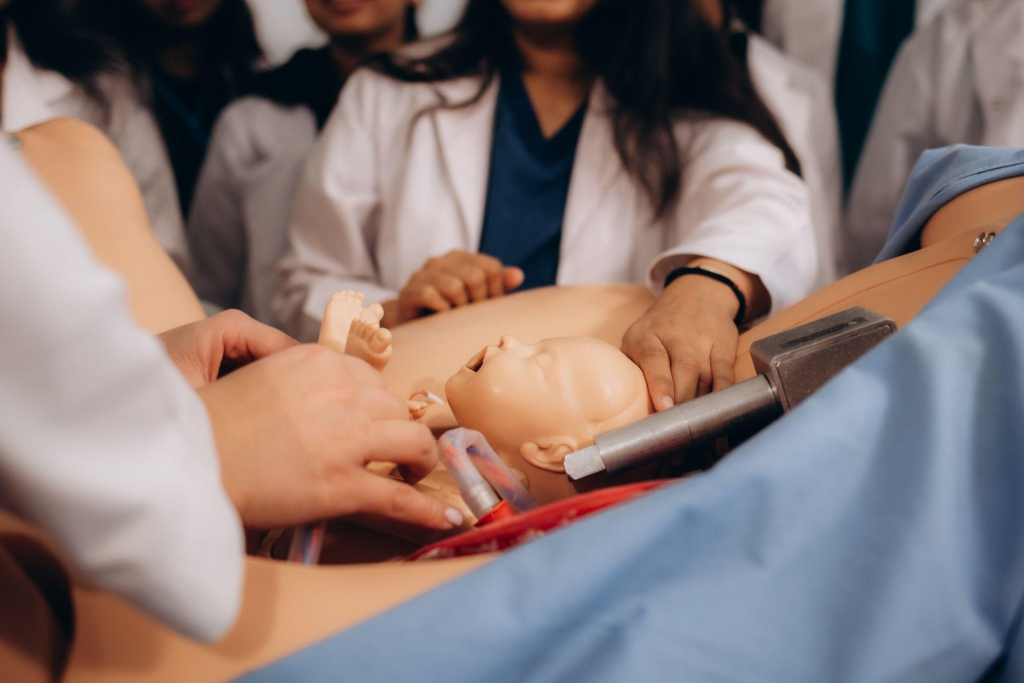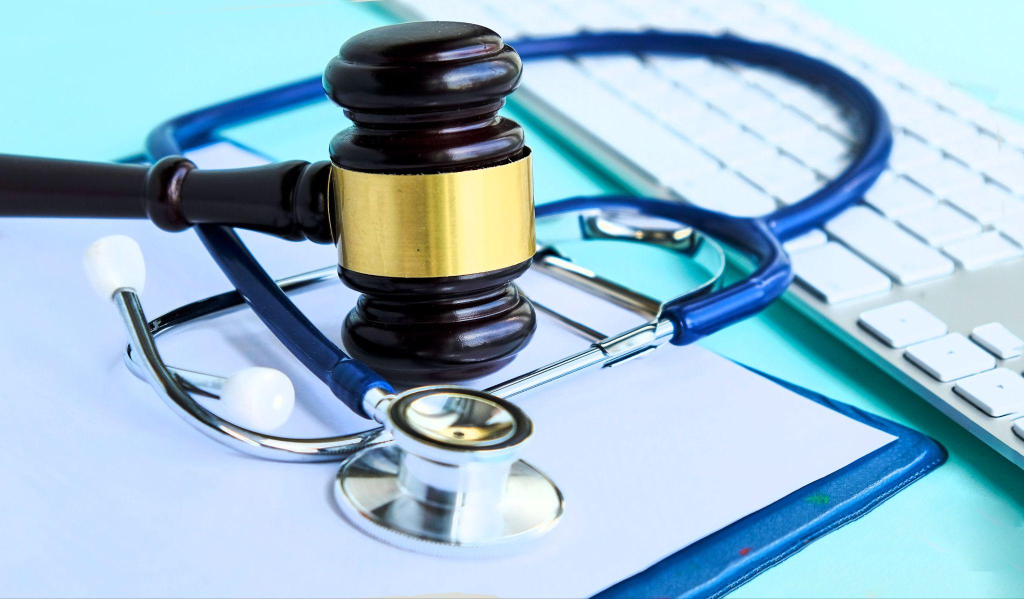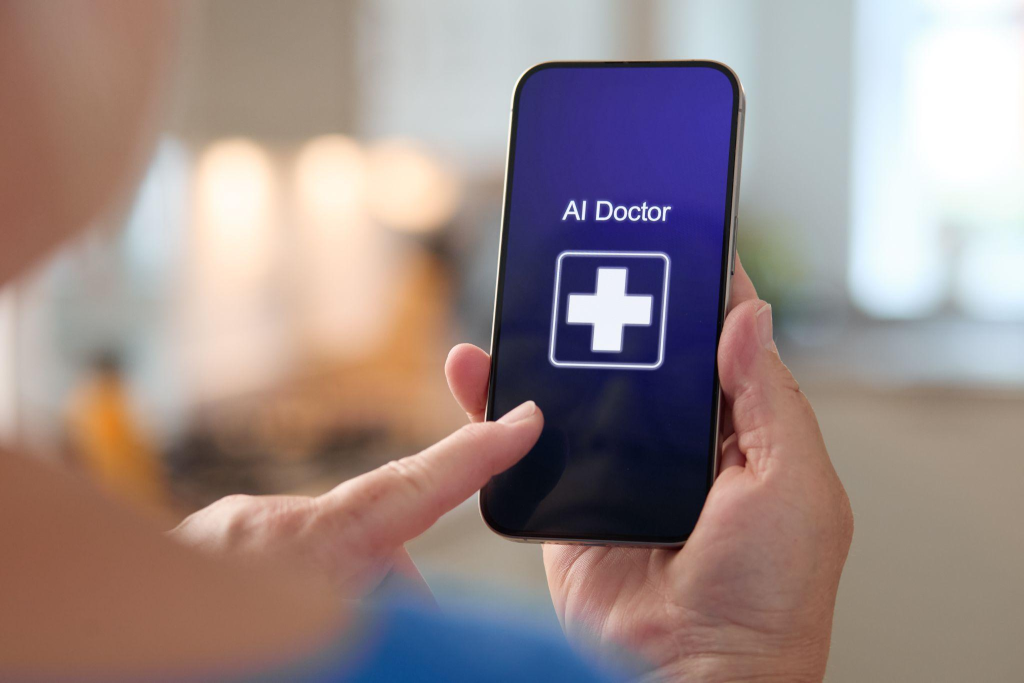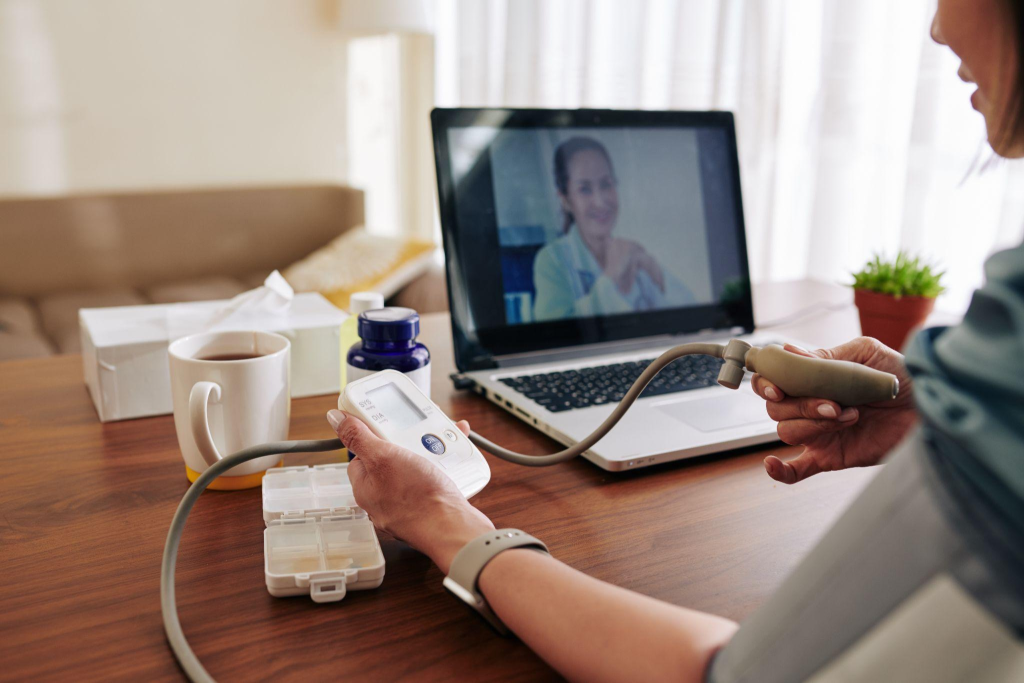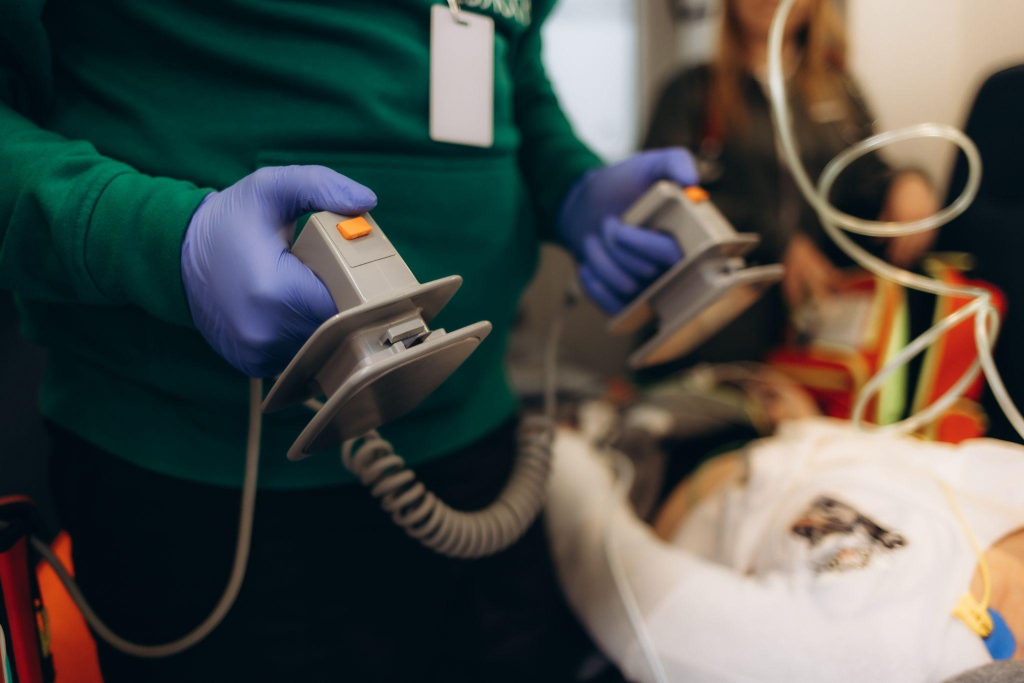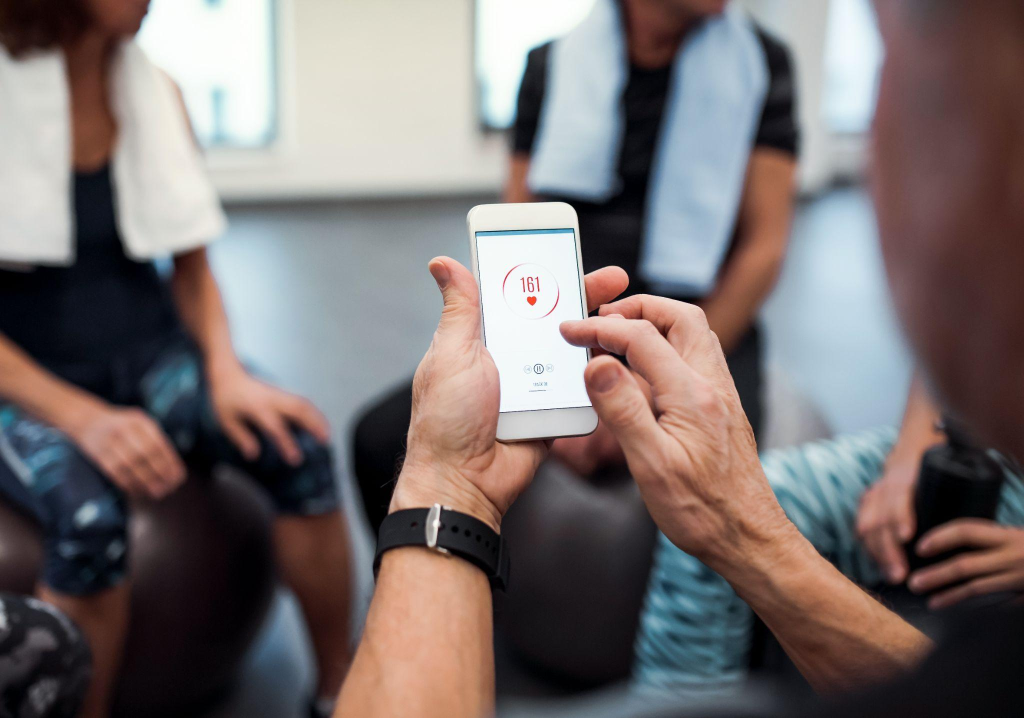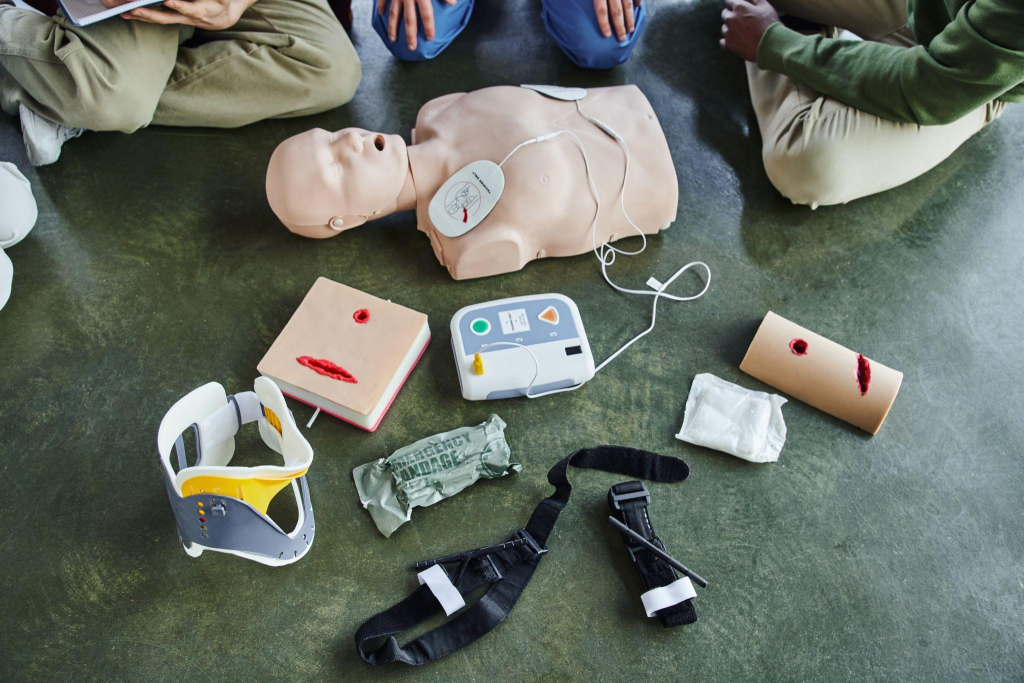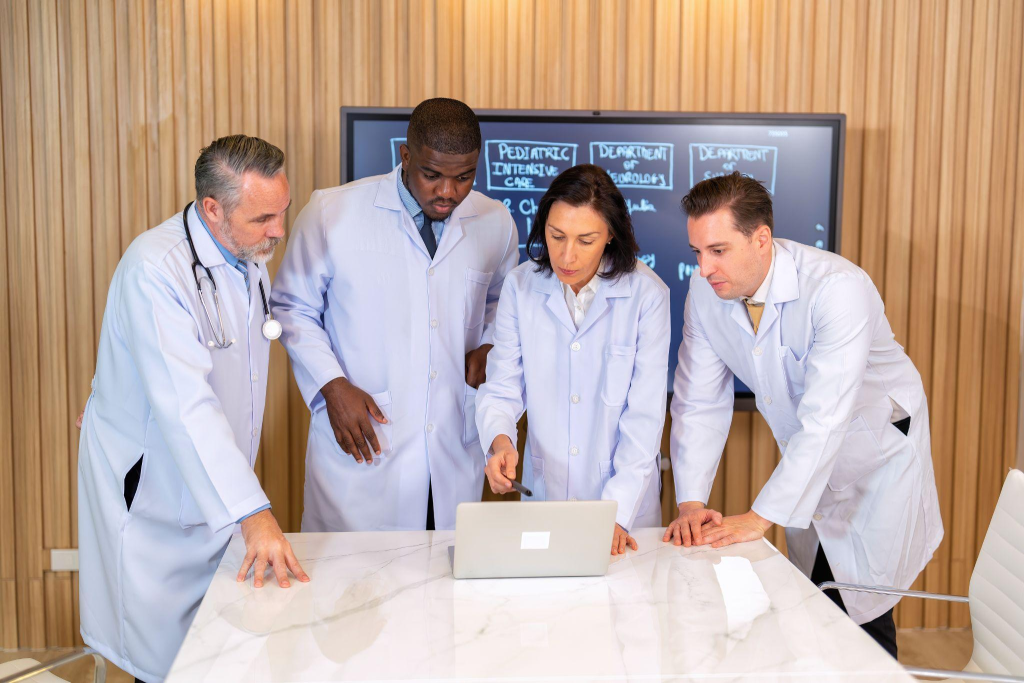In today’s fast-paced healthcare environment, the line between clinical and non-clinical roles is becoming increasingly blurred. As medical emergencies can occur anywhere and at any time, it’s crucial for all healthcare professionals to be prepared to respond effectively.
This raises an important question: should non-clinical staff, such as administrative personnel, educators, and students, consider obtaining Advanced Cardiovascular Life Support (ACLS) certification? While ACLS is typically associated with doctors, nurses, and paramedics, there are compelling reasons why non-clinical staff might benefit from this training.
In this article, we’ll explore the importance of ACLS certification for non-clinical staff, examining the benefits, requirements, and challenges associated with this life-saving skill set. By the end, you’ll have a clearer understanding of whether ACLS certification is right for you and your role in the healthcare industry.
What is ACLS Certification?
ACLS (Advanced Cardiovascular Life Support) is a set of clinical interventions for the urgent treatment of cardiac arrest, stroke, and other life-threatening cardiovascular emergencies. It builds upon the foundation of BLS (Basic Life Support) by emphasizing the importance of advanced medical skills and techniques.
ACLS certification courses, like those offered at Affordable ACLS, provide healthcare professionals with the knowledge and hands-on training needed to:
- Recognize and manage respiratory and cardiac arrest
- Interpret electrocardiograms (ECGs) and identify abnormal rhythms
- Administer medications and perform advanced airway management
- Coordinate resuscitation efforts as part of a team
The goal of ACLS is to improve patient outcomes by ensuring that healthcare providers are equipped with the most up-to-date, evidence-based practices for managing cardiovascular emergencies. By mastering these skills, ACLS-certified professionals can make a significant difference in the lives of their patients and contribute to a culture of safety and preparedness within their organizations.
Who Needs ACLS Certification?
Healthcare Professionals
Healthcare professionals responsible for direct patient care in critical environments are ideal candidates for ACLS certification. Physicians, nurses, and paramedics engaged in emergency medical services must be equipped with advanced skills to handle life-threatening scenarios effectively. This certification empowers them to deploy life-saving interventions swiftly, such as interpreting complex ECG rhythms and administering intravenous medications crucial for stabilizing patients in cardiac distress.
Additionally, those steering or overseeing the management of cardiopulmonary emergencies also gain from ACLS certification. This group includes coordinators and leaders who, while not directly providing care, ensure seamless resuscitation processes and support clinical teams in high-pressure situations. Their comprehensive understanding of ACLS protocols facilitates a unified and swift response, optimizing patient outcomes.
Non-Clinical Staff
The scope of ACLS certification extends beyond clinical roles, offering significant advantages to non-clinical personnel within healthcare settings. Administrative staff who often operate in proximity to emergency situations gain a vital edge in preparedness. By acquiring ACLS skills, these staff members can provide essential support during critical moments, ensuring timely action until specialized medical help arrives.
For educators and trainers involved in healthcare programs, ACLS certification enriches their ability to convey critical life-support techniques, similar to how National Board Certification for educators enhances teaching standards and instructional capabilities. Furthermore, medical and nursing students approaching their clinical rotations find ACLS certification invaluable. It equips them with essential skills and confidence, enabling them to actively participate in patient care and gain a deeper understanding of emergency protocols during their practical training.
Benefits of ACLS Certification for Non-Clinical Staff

ACLS certification elevates the capabilities of non-clinical staff by equipping them with essential life-saving skills and strategies for emergency response. This training fosters a proactive approach to handling critical situations, ensuring that individuals can contribute meaningfully in the moments before clinical teams take over. By integrating advanced knowledge of cardiac emergencies, non-clinical staff become invaluable assets within their healthcare environments.
The confidence gained from ACLS training transforms how non-clinical staff approach emergencies, enabling them to act with decisiveness and calm. Understanding the complexities of life-support procedures allows them to support medical teams effectively, ensuring a seamless transition and reducing the likelihood of chaos during high-stress scenarios. This empowerment translates into more efficient emergency interventions, which are crucial for positive patient outcomes.
Beyond individual empowerment, ACLS certification enhances collaborative efforts during medical crises by promoting effective teamwork and communication. Non-clinical staff are better prepared to coordinate with clinical teams, understanding their roles within the broader emergency response framework. This alignment not only facilitates a unified approach to patient care but also signifies a commitment to maintaining high standards of safety and quality within the healthcare setting. Such credentials enhance the professional standing of non-clinical staff, broadening their career prospects and reinforcing their role as key contributors to healthcare excellence.
ACLS Certification Requirements
To embark on the journey toward ACLS certification, candidates must first establish a solid base by acquiring essential life-support skills. This begins with foundational training in primary emergency response techniques, which forms the core upon which advanced competencies are built. Such training ensures candidates are adept at the initial steps of emergency care, preparing them for more complex scenarios.
A critical requirement for certification is the ability to discern and act upon various cardiac conditions. This involves a robust understanding of cardiac rhythm analysis and the pharmacological interventions utilized in emergency care. Candidates are expected to identify and respond to life-threatening arrhythmias with precision, supported by a thorough knowledge of the medications that aid in stabilizing patients during critical moments.
The practical application of airway management stands as a cornerstone of ACLS training. Candidates engage in immersive training sessions that focus on securing patient airways using advanced techniques and equipment. This hands-on experience is crucial for maintaining patient ventilation and oxygenation, enhancing the candidate’s readiness to manage intricate emergencies effectively.
Certification completion demands success in both theoretical and practical evaluations, ensuring proficiency in implementing ACLS protocols and meeting ongoing certification requirements for healthcare professionals. To sustain their credentials, certified professionals engage in biennial renewal processes that emphasize current best practices and guideline updates in cardiovascular care. This ongoing commitment to education reflects the dynamic nature of healthcare and the necessity for perpetual professional growth.
Challenges and Considerations
Navigating the path to ACLS certification requires non-clinical staff to adeptly manage their time and resources. These professionals, often entrenched in administrative or educational roles, must carve out space in their schedules to engage in training and skill development. This demands a strategic approach, ensuring that they can fulfill both their educational requirements and professional responsibilities without compromise.
Another significant hurdle is ensuring the consistent practice of advanced life-support techniques to prevent skill attrition. ACLS certification encompasses a broad array of protocols that necessitate regular engagement to maintain expertise. For non-clinical staff, actively participating in simulations or interdisciplinary drills can be crucial for skill retention, allowing them to rehearse and refine their competencies in a supportive environment.
Staying engaged in lifelong learning is essential to keep up with the evolving landscape of ACLS protocols, much like the Project Management Professional (PMP)® certification process, which emphasizes continuous education and skill development. This commitment to continuous improvement not only enhances their own capabilities but also strengthens their role within the healthcare team.
The psychological demands of emergency response can also pose significant challenges. Non-clinical staff may encounter emotionally charged situations that test their resilience. Access to debriefing sessions and peer support networks can be vital in managing the emotional toll of these high-stakes environments, fostering emotional well-being and sustaining the mental readiness necessary for effective life-support intervention.
Alternatives to Full ACLS Certification
For non-clinical staff seeking to fortify their emergency response skills without committing to full ACLS certification, several alternative training options offer robust skill development. These alternatives focus on essential life-support techniques and are particularly beneficial for those balancing varied roles within healthcare environments.
Basic Life Support (BLS) Certification
Core Competencies: BLS certification is foundational for emergency readiness, providing essential training in CPR and AED use. This certification ensures individuals have the critical skills needed to deliver immediate, life-saving interventions during cardiac emergencies.
Broad Relevance: BLS training emphasizes essential skills applicable across a wide range of emergency situations. It is an optimal choice for non-clinical staff who need to maintain readiness to act efficiently and effectively in unforeseen medical emergencies.
CPR and AED Training for Non-Medical Professionals
Practical Emphasis: CPR and AED training programs are specifically designed for those outside the medical field, concentrating on essential life-saving techniques that can be swiftly applied in emergencies. These programs focus on practical, hands-on experience to ensure participants are prepared to respond confidently to cardiac events.
Adaptable Formats: Many organizations offer CPR and AED training in diverse formats, including online and in-person sessions. This flexibility allows non-clinical staff to incorporate training into their schedules seamlessly, enhancing proficiency in emergency response skills.
Emergency Response and First Aid Courses
Tailored Instruction: Emergency response and first aid courses can be customized to address the specific needs of different work settings, equipping non-clinical staff with the skills necessary to handle the unique challenges and risks present in their environments.
Extensive Training: These courses provide a comprehensive approach to emergency preparedness, covering a wide range of scenarios from minor injuries to critical medical events. By focusing on both preventive measures and active intervention, they promote a proactive stance on safety and emergency management throughout healthcare settings.
The Importance of Continuous Learning
In the dynamic landscape of healthcare, continuous learning in ACLS is indispensable for ensuring that patient care remains at the forefront of medical standards. Keeping abreast of the latest guidelines and best practices is vital, as it empowers practitioners to implement the most current and effective life-support interventions. This commitment to staying informed ensures that healthcare professionals are always equipped with the most advanced techniques, crucial for delivering high-quality care in emergencies.
Regular participation in drills and simulations offers invaluable practice, allowing healthcare staff to hone their skills in a controlled setting. These exercises simulate real-life scenarios, enabling participants to refine their rapid-response capabilities and enhance their teamwork. By engaging in these realistic training sessions, both clinical and non-clinical personnel can maintain their proficiency and readiness to act decisively when faced with actual emergencies.
Furthering one’s expertise through additional training and specialization opportunities enriches a healthcare professional’s ability to manage a diverse array of medical challenges. Pursuing advanced certifications or niche specializations can deepen knowledge and expand one’s skill set, preparing individuals to address a broader spectrum of cardiovascular incidents. This proactive approach to professional development not only benefits individual careers but also bolsters the collective expertise of healthcare teams, fostering an environment of excellence in patient care.
Engaging in self-directed learning and collaborative peer interactions enhances the retention and expansion of ACLS knowledge. Accessing professional publications, participating in online learning communities, and exchanging insights with colleagues support a shared commitment to continuous improvement. This collaborative learning culture ensures that healthcare professionals remain at the cutting edge of life-support advancements, integrating new methodologies and technologies into their practice with agility and confidence.
While the decision to pursue ACLS certification as a non-clinical healthcare professional is a personal one, the benefits are clear: enhanced emergency preparedness, improved patient outcomes, and expanded career opportunities. By investing in your own knowledge and skills, you contribute to a culture of safety and excellence within your organization. If you’re ready to take the next step in your professional development, we invite you to explore our online certification and recertification courses designed to fit your busy schedule and help you achieve your goals.

